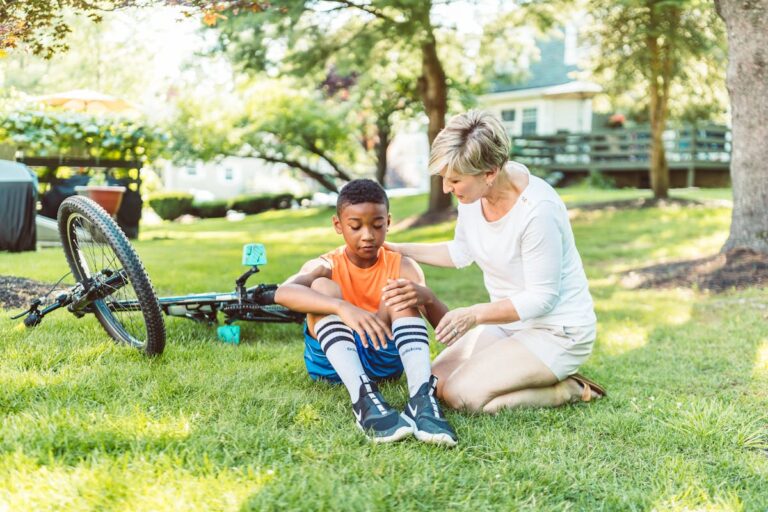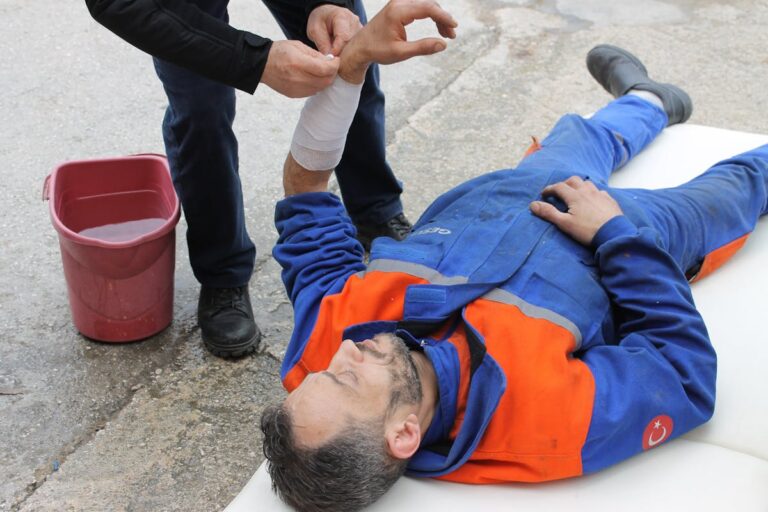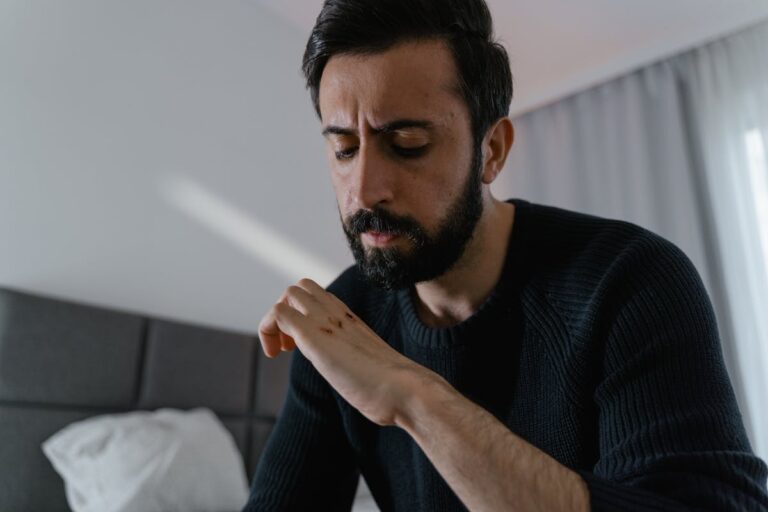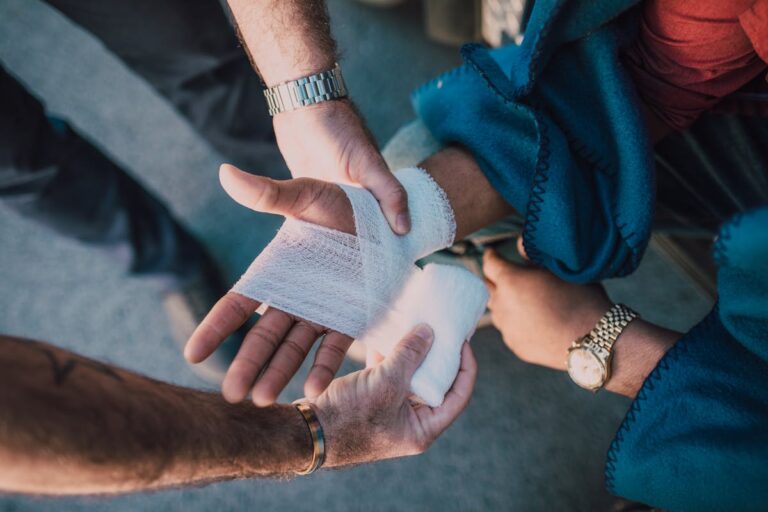In the wake of a car accident, precise actions are vital for securing maximum compensation for damages and injuries. This process, which involves safety assessment, diligent documentation, and prompt reporting, can often be overwhelming. Also, the role of immediate medical attention and the consultation of a legal expert often becomes essential. But how exactly do these steps contribute to claim maximization and what challenges might arise in this journey? Let’s explore this multifaceted topic to better equip ourselves in the unfortunate event of a vehicular mishap.
Assess Immediate Safety Concerns
Immediately following a car accident, your primary concern should be to assess immediate safety risks. This step, often overlooked in the chaos of the moment, is essential in order to prevent further harm and protect your personal well being.
The first part of the safety assessment involves checking yourself for injuries. Even minor accidents can result in serious harm that may not be immediately apparent. Next, evaluate the safety of your passengers, if any, and guarantee they are not in immediate danger.
Following this, check the surroundings. Is your vehicle in a safe location or does it pose a risk to other road users? If your car is creating a hazard, move it to a safe location, if possible, but only if you’re certain it won’t cause additional damage or injury.
In high-risk situations, such as if your car is leaking fuel or if you’re on a busy road, exit the vehicle and move to a safe distance.
Document the Accident Scene
In the aftermath of a car accident, it is paramount to meticulously document the scene. This includes capturing detailed photographs, gathering information from any available witnesses, and noting important details about the event. This critical step aids in providing a clear, objective narrative of the incident, which can substantially influence insurance claims and potential legal proceedings.
Photographing the Scene
Have you considered the importance of capturing visual proof following a car accident? An effective scene assessment, executed through adept photographic techniques, could greatly influence the outcome of your claim.
In the immediate aftermath of a collision, it is crucial to remain composed and recall the importance of documenting the scene. Begin by taking a wide-angle shot to capture the overall scene, including the location, weather conditions, and traffic signs or signals. This will provide an extensive view of the circumstances surrounding your accident.
Next, focus on the specific damage to your vehicle and any other cars involved. Capture detailed images of dents, scratches, shattered glass, or deployed airbags. This will provide indisputable evidence of the impact and severity of the collision.
Lastly, photograph any visible injuries you or your passengers may have sustained. While these images may be disturbing, they can serve as powerful testimony of the physical trauma endured.
Gathering Witness Information
Securing evidence from the scene of a car accident often extends beyond photographic documentation. Gathering witness information is an essential component of this process. Witnesses provide a third-party perspective which can offer critical insights into the circumstances and dynamics of the accident. Their testimonies can bolster your claim and greatly increase your chances of receiving the maximum compensation.
The reliability of a witness is paramount. Their credibility, recall accuracy, and impartiality can make a difference in the weight their testimony carries. When identifying witnesses, consider their vantage point during the accident, their level of distraction, and their ability to recall the event clearly.
Securing contact information is equally important. Request for names, phone numbers, addresses, and email addresses. This information will enable your attorney or insurance company to reach out to them for further details if necessary. Remember, consent is important; always ask permission before taking down their details.
Note Important Details
Documenting the accident scene meticulously provides a wealth of valuable evidence that can support your claim. This is a significant step towards maximizing your compensation after a car accident. Insurance companies are more likely to pay a fair settlement if accident documentation is extensive, detailed, and unambiguous.
Firstly, record the exact location, date, and time of the accident. Document all visible damages to your vehicle and to any other vehicles involved in the incident. If applicable, note any skid marks, broken glass, or vehicle parts on the road. These details can help to establish the severity of the collision and the level of caution exercised by all drivers involved.
Secondly, capture clear photographs of your injuries, if any. This is critical as it provides irrefutable proof of physical harm resulting from the accident. Make sure to also note any immediate symptoms or pain experienced.
Report the Incident to Police
Ensuring a prompt report to law enforcement following a vehicle accident can serve as an essential pillar in the overall process of managing the incident. This discussion will explore the importance of immediate reporting, the benefits of effectively documenting police interactions, and the subsequent impact these steps will have on insurance claims. By understanding these elements, one can better navigate the complexities of post-accident procedures, and safeguard their interests.
Importance of Immediate Reporting
The victim’s immediate reporting of a car accident to the police holds paramount importance. This report initiates the official accident timeline, an essential element in establishing the facts of the incident. A prompt and definitive police response is essential for multiple reasons.
Firstly, the police response guarantees that any immediate safety concerns are addressed. This includes dealing with potential hazards such as leaking fuel, uncontrolled traffic, or potentially violent situations. The police are also able to provide immediate medical attention or facilitate it if required.
Secondly, immediate reporting allows for an accurate and timely record of the accident’s events. The police will document the scene, noting the positions of the vehicles, any property damage, and identifying potential witnesses. This record can be critical when it comes to establishing liability in the aftermath of the accident.
Documenting Police Interaction
Having underscored the importance of immediate reporting, the next step after a car accident is to focus on chronicling the interaction with the police. This step is essential as it provides concrete, third-party documentation of the incident, which can greatly influence the compensation you receive.
When interacting with the police, remember to be calm, cooperative, and clear. State the facts as you remember them, avoiding speculation or blame. Don’t be afraid to say “I don’t know,” if you’re unsure about specific details. These interaction tips will guarantee a thorough and accurate police report.
Documenting police interaction also involves obtaining a copy of the police report. This document is critical as it contains the officer’s observations, statements from all parties involved, and sometimes even a drawn diagram of the accident scene. It is a piece of evidence that can support your claim, especially if the other party disputes your account of the event.
The process may seem intimidating, but proper documentation of police interaction can greatly strengthen your case. By following these guidelines, you can guarantee that your rights are protected, and you’re a step closer to securing fair compensation.
Effect on Insurance Claims
In the labyrinth of insurance claims, your rapport with the police can be a beacon of light. This key relationship can greatly influence the outcome of your claim process, especially in instances where liability is disputed. It is important to remember that the police report serves as an official, unbiased record of the incident which insurance companies highly value.
The immediate reporting of the incident to the police can have a positive effect on your insurance coverage. This step not only verifies your account but also validates the authenticity of your claim. Insurance providers are more inclined to settle claims in your favor when backed by an objective police report. This report provides them with essential details about the accident, making it easier for them to assess liability and determine the amount of compensation.
Failure to report could potentially result in your insurance company denying the claim on the grounds of late reporting. This could also give them the impression that you are not fully committed to the claim process. Consequently, contacting the police promptly after a car accident is not only a legal requirement but also a strategic move in maximizing your compensation.
Seek Medical Attention Promptly
Immediately following a car accident, your first priority should be to seek medical attention promptly. Even if you feel fine, it’s essential to undergo a thorough medical evaluation. The adrenaline rush and shock from the accident often mask pain and injuries, which may lead to delayed symptoms.
Prompt medical attention not only guarantees your safety but also serves as an irrefutable record of your injuries. This documentation is significant in establishing a clear connection between the accident and your car accident injuries, a key element when seeking compensation. Medical records provide a definitive timeline, making it difficult for insurance companies to argue that your injuries were pre-existing or not related to the accident.
A detailed medical evaluation also allows for accurate injury assessment. Even minor accidents can cause hidden injuries like micro-fractures or soft tissue injuries, which only medical professionals can diagnose. These injuries, if left untreated, can lead to chronic pain or long-term health issues.
Take your health seriously and prioritize immediate medical care after an accident. Remember, a delay in treatment not only jeopardizes your health, but it could also potentially diminish the value of your compensation claim.
Notify Your Insurance Company
After ensuring your wellbeing at a medical facility, your next essential step should be to notify your insurance company about the accident. It is important to report the incident promptly. Delaying the process may complicate your claim and potentially jeopardize your chance to receive full compensation.
Your insurance company is obligated to assist you through this challenging time as part of your insurance coverage. They will guide you through the claim process, ensuring you understand each step. Remember to provide accurate details about the accident, as omission or misrepresentation of facts can lead to claim denial.
When speaking with your insurance company, be prepared to provide information about the accident’s time, location, and any other involved parties. Additionally, if possible, submit photographs of the accident scene and the damaged vehicle. This evidence will support your claim and increase your chances of receiving adequate compensation.
Consult a Car Accident Lawyer
Steering through the complexities of insurance claims and potential legal proceedings following a car accident can be intimidating. This is where the necessity to consult a car accident lawyer becomes paramount. Professional legal representation will guide you effectively through the often convoluted legal paths that victims may encounter post-accident.
A seasoned car accident lawyer is well-versed in the laws surrounding accident liability and can help guarantee you receive the compensation you deserve. They can thoroughly review the circumstances of your accident, compile evidence, and skillfully negotiate with insurance companies on your behalf. Their expertise can be instrumental in proving liability and securing a favorable settlement.
Seeking legal representation is particularly important in cases where damages are substantial, fault is disputed, or if you’re offered a settlement that doesn’t adequately cover your losses. A lawyer can protect your rights and fight for your interests, providing the peace of mind that someone with knowledge and experience is advocating for you.
The aftermath of a car accident can be overwhelming, but remember, you don’t have to navigate this journey alone. Consult a car accident lawyer promptly, to maximize your chances of receiving full and fair compensation.
Avoid Discussing Fault Publicly
While consulting a car accident lawyer can provide much-needed legal guidance, it’s equally important to exercise discretion in your public communications post-accident. This includes conversations you might have at the accident scene, public statements you make thereafter, and any commentary you post on social media.
In the aftermath of an accident, emotions can run high, and it’s only natural to want to share your experience or vent your frustrations. However, doing so publicly can potentially jeopardize your claim and limit the compensation you might receive. Remember that insurance adjusters and legal teams often scour social media profiles and public records for information that could be used against you.
Even seemingly innocent comments about the accident could be twisted and interpreted as an admission of fault. Your words, especially when shared publicly, can form a binding narrative about the incident that might not fully reflect the circumstances surrounding the accident or your experience. As a result, it’s wise to limit your public statements about the accident and refrain from discussing fault or liability. Instead, focus on your recovery and let your lawyer handle the legalities. This approach can help you maximize your potential compensation.
Follow Through With Medical Treatments
Why is it essential to follow through with medical treatments after a car accident? The answer is twofold; it not only guarantees your wellbeing but also strengthens your claim for compensation.
After an accident, medical follow-ups are fundamental. They guarantee that any latent injuries, which may not exhibit immediate symptoms, are detected and treated promptly. Ignoring or delaying treatment can lead to complications, prolonging your recovery and potentially increasing medical expenses.
Furthermore, maintaining a consistent schedule of treatments and appointments demonstrates to insurance companies and courts that your injuries are severe and require significant attention. It shows that you are taking your health seriously and doing everything possible for a speedy recovery. This commitment can enhance your credibility and the perceived legitimacy of your claim.
Lastly, treatment documentation is a key element in substantiating your claim. Detailed medical records that depict the extent of your injuries, the treatments received, and progress reports can serve as substantial evidence. Such documentation can directly influence the compensation awarded, making it essential to keep every receipt, prescription, and medical report. As a result, following through with medical treatments after a car accident is not only important for your health, but also instrumental in maximizing your compensation.
Frequently Asked Questions
How Can I Deal With My Car Accident Anxiety Post-Incident?
Managing post-incident car accident anxiety can be achieved through various coping strategies. Seek professional help if needed, utilize support networks, and consider relaxation techniques, therapeutic interventions or cognitive behavioral therapy to address the emotional trauma effectively.
What Should I Do if the Other Driver Flees the Scene?
If the other driver flees, follow hit and run procedures: note the vehicle’s details, seek witnesses, photograph the scene, and immediately report to the police. Gathering evidence promptly aids in identifying the culprit, ensuring rightful compensation.
What to Do if I Am Not Insured at the Time of the Accident?
If uninsured at the time of an accident, you may face legal consequences. Contact an attorney promptly to navigate potential penalties. Remember, being an uninsured motorist implicates you financially and legally in accident repercussions.
How Do I Handle Car Repair or Replacement After the Accident?
After an accident, assess repair options for your vehicle. Contacting your insurance company is essential, as they can guide on rental coverage during repair time, or discuss replacement if the car is deemed a total loss.
What Are Some Tips to Handle Communication With the Other Partys Insurance Company?
When dealing with the other party’s insurance company, employ insurance negotiation tips. Guarantee clear, factual communication, understanding that 90% of accident claim processes are resolved through negotiation, not court. Maintain professionalism and document all exchanges for reference.






